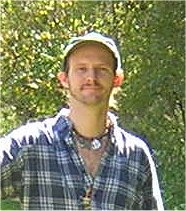The most important thing to learn in life is the lesson of breathing. Everything else about the universe comes from this one lesson.
For every breath in must be balanced by a breath out. And so everything is life is kept in balance. Breathing is the art of balance: the skill of taking in and giving back.
We live in a modern world of give and take; a world where it is better to give than to receive. Yet, we receive the moment we are born. If only we should give back later. We receive the gift of life. And we should give back the gifts of living. Perhaps we will also create life. Perhaps we will aid the living. Perhaps we will teach, or share the lessons we have learned. In any case, as with breathing, we take in and we give back.
As in breathing the universe exists in balance. Every law, every property, all is defined by balance. For every action there is an opposing reaction. Matter and energy are neither created nor destroyed, but they can change form. All remain in harmony with one another.
The Eastern philosophers have known for many centuries that all the mysteries of the universe can be understood through breathing. Understanding begins with but a single breath!
For every breath in must be balanced by a breath out. And so everything is life is kept in balance. Breathing is the art of balance: the skill of taking in and giving back.
We live in a modern world of give and take; a world where it is better to give than to receive. Yet, we receive the moment we are born. If only we should give back later. We receive the gift of life. And we should give back the gifts of living. Perhaps we will also create life. Perhaps we will aid the living. Perhaps we will teach, or share the lessons we have learned. In any case, as with breathing, we take in and we give back.
As in breathing the universe exists in balance. Every law, every property, all is defined by balance. For every action there is an opposing reaction. Matter and energy are neither created nor destroyed, but they can change form. All remain in harmony with one another.
The Eastern philosophers have known for many centuries that all the mysteries of the universe can be understood through breathing. Understanding begins with but a single breath!




